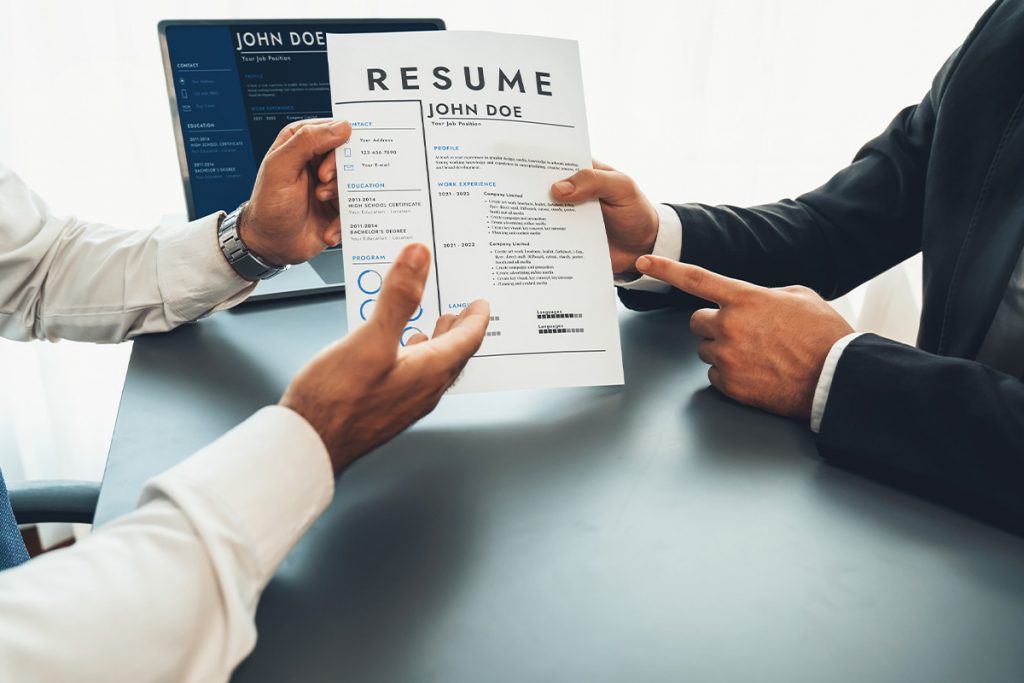- 77196-43874
- info@incareercare.com
- careercare0123@gmail.com
- Chandigarh, India
Job Seekers
Career Advice
When it comes to building a successful career, there are a few key things to keep in mind. First, discover your passion and align your career path with it. Find what truly excites and motivates you. Second, set clear goals and create a roadmap to guide your journey. Break down your goals into actionable steps. Third, embrace continuous learning and stay updated with industry trends. Acquire new skills and seek opportunities for growth.
How to Write a CV
When creating your CV, it is essential to include relevant personal information that provides a comprehensive overview of your background and identity.
Advice:
- Same as career summary or a personal mission statement
- Tailor your personal statement with words that reflect skills and experiences to the job you are applying for
- Try not to use a generic personal statement for every job application
- Keep it short with a few sentences or bullet points
Things to include:
- Names of organizations where you were employed
- Positions and/or titles you held
- Employment periods
- Working Location
- Responsibilities
- Key achievements
Advice:
1. Do not write experience sections that read like job descriptions
2. Try to quantify the result of your work
3. Emphasize your achievements and provide proof of your potential value
4. Highlight only the achievements and skills that are most relevant to the job
Advice:
- Start with your most recent role and work backwards
- List qualifications that are related to the role you are applying for
Advice:
- Add any relevant languages and computer skills you may have

Interview Tips
Often, the toughest part of getting any job is likely to be the interview – that moment when you come face to face with a prospective employer and just when you need all the confidence you can muster it seems to completely disappear. Getting through interviews and making them work effectively for you is something that everyone can do – it just takes careful planning.
Please keep the following guidelines in mind before attending interview.

Job Details - Find out as much as you can about the job, analyse the job description, try and work out what sort of person is required and match that to your own strengths and skills.
Research the company-Research about the organization, its products, subsidiaries, if any, and the turnover.
Punctual - Plan your route - ideally you should aim to arrive 5-10 minutes early to give yourself a chance to look around and to relax.
Dress up - The importance of first impressions cannot be overstated. Make sure that you look smart and professional.
Important Questions -Make a note of any questions to ask (at least three questions to be prepared) on the day or any points you would like to cover at the interview.
Some companies use telephone interviews to draw up their shortlist so it is worth giving some thought to how you would cope with this technique.
To prepare for a phone interview – It is particularly important to think of some questions that you want to ask the interviewer.
Ensure that you have some privacy - Try and find a quiet phone that you can use and then you need to get yourself into interview 'mode'.
Face Expressions- Try and imagine you are sitting in front of the interviewer and use facial expressions as you would in a one to one interview because your attitude and frame of mind is always reflected in your voice - so don't forget to smile and be positive.
Work out honest and persuasive answers to likely questions such as:
- Why do you want to join us?
- What can you bring to the job/company?
- Why did you leave your last job or why are you leaving your present job?
- Tell me about your last/present job?
- How will you set about tackling this job if you are successful?
- What do you think the main changes will be between your last/present job and this one?
Give yourself plenty of time - don't put yourself under extra pressure by having to rush. Always take an up-to-date copy of your CV that is clean and crisp together with a notebook and pen. When you meet the interviewer look directly at the person, smile, and give a firm handshake - this shows confidence.
Be positive
Watch your body language - e.g. don't cross your arms (it gives the impression of putting up a barrier between you and the interviewer); make frequent eye contact; good posture is important
- Listen
- Reply to any questions clearly and concisely
- Make a note of points to return to
- Be courteous to everyone you meet
- Be honest
- Interrupt
- Fidget
- Let your mind wander
- Be afraid to sell yourself
- Just answer with a yes or no - expand
Remember to thank the interviewer for seeing you and again shake their hand firmly and confirm that you want the job. Remember to believe in yourself, your skills and abilities. You wouldn’t have been selected for the interview in the first place if the company didn’t think you could be the right person for the job.
Every interview is a learning experience and each one teaches you a little bit more about what to say and do and what to avoid. If you are unsuccessful then don’t be too dismayed – there is always next time and the better your interview technique the more likely it is that you will succeed.

